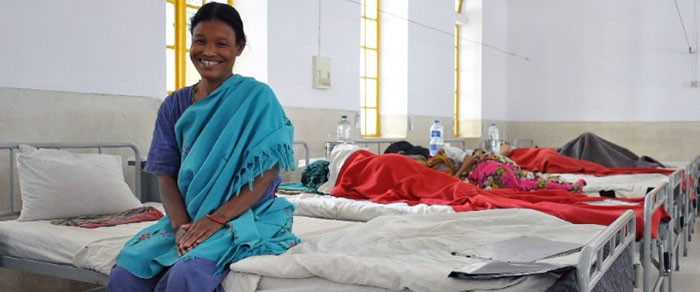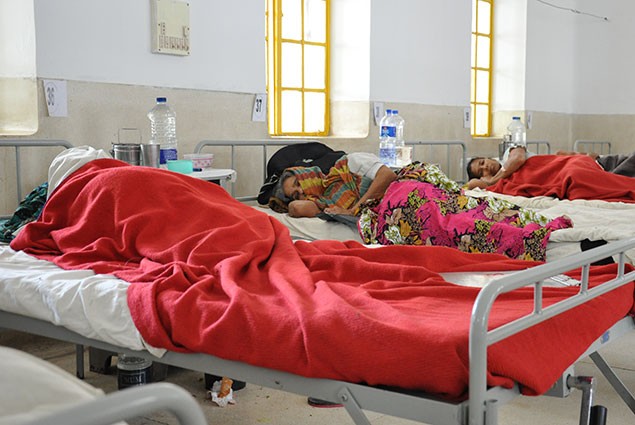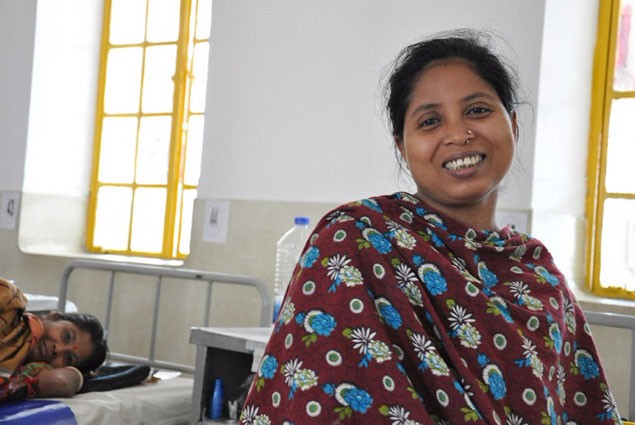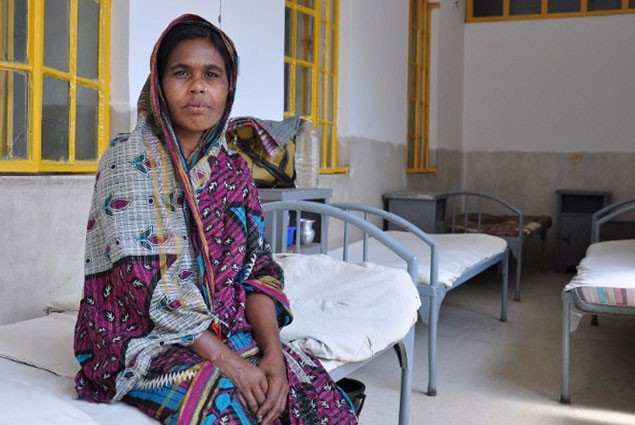- What We Do
- Agriculture and Food Security
- Democracy, Human Rights and Governance
- Economic Growth and Trade
- Education
- Environment and Global Climate Change
- Gender Equality and Women's Empowerment
- Global Health
- Humanitarian Assistance
- Transformation at USAID
- Water and Sanitation
- Working in Crises and Conflict
- U.S. Global Development Lab
Speeches Shim

Fistula Care Plus aims to strengthen health system capacity for fistula prevention, detection, treatment, and reintegration in sub-Saharan Africa and South Asia. Obstetric fistula, a hole that develops between the birth canal and one or more of a woman's internal organs, is caused by obstructed labor without access to timely and skilled medical care, such as cesarean section. Fistula results in chronic, uncontrollable leakage of urine and/or feces, a devastating, lifelong disability that affects a significant number of girls and women in Africa and Asia.
Activities are taking place in Bangladesh, Democratic Republic of the Congo, Niger, Nigeria, and Uganda. The project works to:
- Strengthen policy and the enabling environment to institutionalize fistula prevention, treatment and reintegration
- Strengthen maternal health and family planning services in the public and private sectors to support fistula prevention and treatment
- Enhance community understanding and practices to prevent fistula, improve access to fistula treatment, reduce stigma, and support reintegration of women and girls with fistula into their communities
- Reduce transportation, communications, and financial barriers to accessing preventive care, detection, treatment, and reintegration support
- Strengthen the evidence base for approaches to improve fistula care and scale up application of standard monitoring and evaluation indicators for prevention and treatment.
The project focuses on new partnerships, innovations and sustainable approaches.
Learn more on the Fistula Care Plus website.
FistulaCare Plus is a cooperative agreement from December 2013 to March 2021, awarded to EngenderHealth along with Dimagi, TERREWODE, Direct Relief, the Fistula Foundation, and the Maternal Health Task Force.
Photo Gallery

Fistula Ward
The U.S. Agency for International Development's Fistula Care Plus trains doctors and nurses to perform fistula surgery and works in communities to prevent fistulas through voluntary family planning and access to quality, timely care during delivery. Photo credit: Amy Fowler/USAID.

Inside the Fistula Ward
In Bangladesh, more than 70,000 women have fistulas, and every year 2,000 more women develop them. Fistula Care Plus and other USAID-supported projects have repaired over 36,000 fistulas around the world since 2005. Meet a few women now living fistula. Photo credit: Amy Fowler/USAID.

Fistula Care - Hosnera
Hosnera had a fistula for 10 years. She had a fistula repair surgery, but due to the complicated nature of hers, it was unsuccessful. With training from Fistula Care Plus, doctors at Kumundini Hospital were able to successfully perform the surgery. Photo credit: Amy Fowler/USAID.

Fistula Care - Chandana
Chandana is 30 years old and had a fistula for 15 years. She heard about fistula repair surgery from a neighbor and traveled far to receive it. Chandana's first husband left her due to the fistula, so she is now the second wife to her current husband. Photo credit: Amy Fowler/USAID.

Fistula Care - Juliana
Juliana had a fistula for 14 years. Her husband, a farmer, has stayed with her, and they have 2 children. Her surgery was 16 days ago. She is looking forward to a better life without fistula when she returns home. Photo credit: Amy Fowler/USAID.

Fistula Care - Sukuri
Prior to this one, Sukuri had two unsuccessful operations to repair a large fistula she has had for 13 years. Her husband left due to her fistula, but he has come back repeatedly because of their child. Sukuri is anxious to have another child with him. Photo credit: Amy Fowler/USAID.

Comment
Make a general inquiry or suggest an improvement.